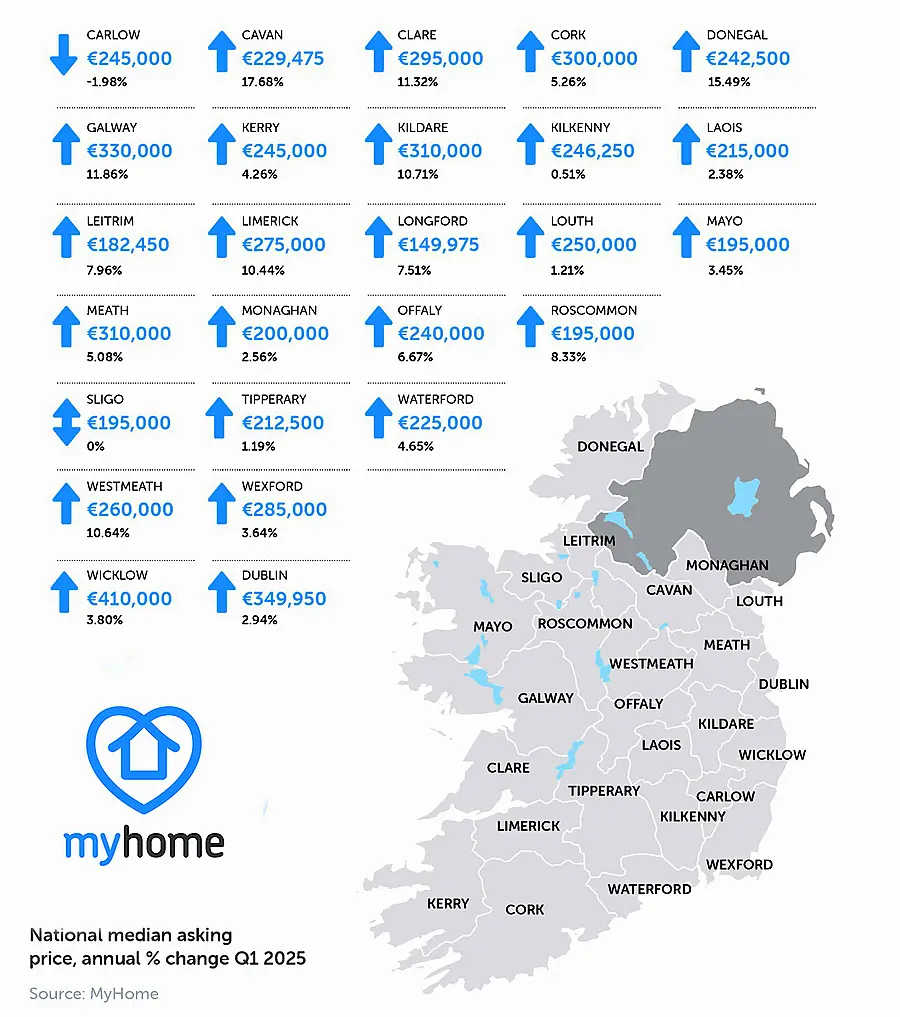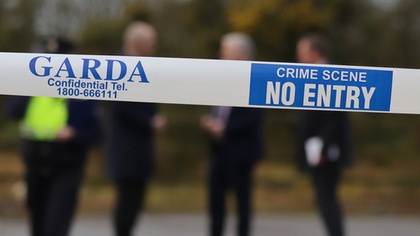He said, however, that in the absence of a trade war, all signs point to further growth, and in that instance our forecast of 5% inflation for 2025 may even prove to be conservative. “The average mortgage approval was €318,400 in January, up 7% on 2024 – pointing to further price gains, while the extent of the tightening housing market is still striking. At end-March, just 10,800 homes were listed for sale on MyHome, a fresh record low. Just one in every two hundred homes in Ireland is currently listed for sale.
“Notably, first-time-buyer mortgage drawdowns rose to 26,200 in 2024, their highest level since 2007 but mover drawdowns fell to just 9,000 loans, now 20% below pre-Covid-19 levels.”
Meanwhile, Mr MacCoille warned of increasingly stretched affordability in the market. “Through 2024 Ireland’s residential property price index rose by 8.7%, stretching affordability versus the 5.6% pay growth recorded over the same period. The average Irish residential property transaction of €404,000 was an eight-times multiple of average annual earnings of €51,000. This is the most stretched Irish house prices have become relative to income since 2009.”
Turning to supply, he said the picture couldn’t be more opaque. “The 67,000 housing starts recorded in 2024 clearly didn’t reflect underlying activity levels, but rather developers rushing to avail of waivers on local authority and water infrastructure charges. That said, it is worth remembering that completions of scheme houses rose to 16,200 in 2024, or including one-off houses, to 21,600. In both cases these are the highest levels attained since the Celtic Tiger era.
“The disappointing 30,000 completion figure for 2024 reflected the 8,763 apartment completions, down 24% on the year. However, 15,900 apartments, equivalent to at least two years’ supply, were still under construction as of September 2024. In summary, we would still expect some pick-up in housing completions in 2025.”
Joanne Geary, Managing Director of MyHome, said: “As the threat of a trade war with the US looms, our reliance on certain sectors of the economy will come into sharp focus. The housing market is vulnerable to any economic headwinds, so it is imperative that the Government limits the impact if at all possible while also continuing to ramp up housing supply.”







